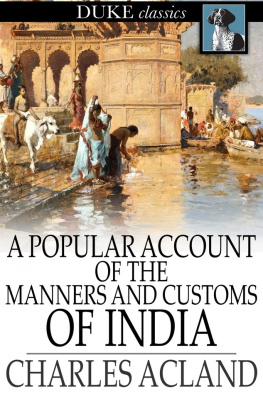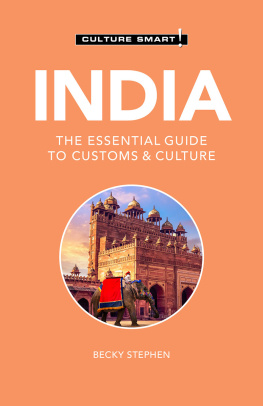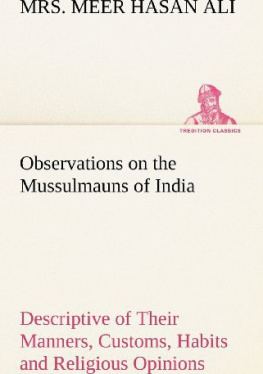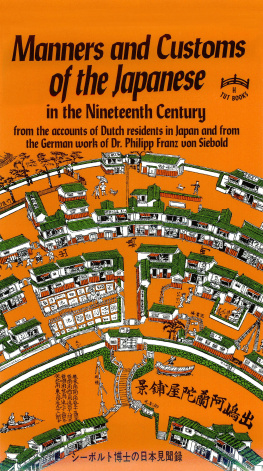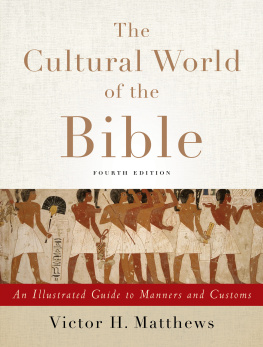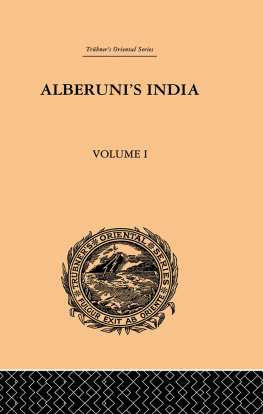A POPULAR ACCOUNT OF THE MANNERS AND CUSTOMS OF INDIA
* * *
CHARLES ACLAND
*
A Popular Account of the Manners and Customs of India
First published in 1847
ISBN 978-1-62013-509-9
Duke Classics
2014 Duke Classics and its licensors. All rights reserved.
While every effort has been used to ensure the accuracy and reliability of the information contained in this edition, Duke Classics does not assume liability or responsibility for any errors or omissions in this book. Duke Classics does not accept responsibility for loss suffered as a result of reliance upon the accuracy or currency of information contained in this book.
Contents
*
Preface
*
The author of the present work was a clergyman, who, along with hiswife, quitted England about the beginning of the year 1842, leavingbehind him several young children, to whom, as appears from theletters he constantly addressed to them, he was most affectionatelyattached.
They left the country full of hope that they should all be reunitedat some future period; but, before he had been three years exposedto the climate of India, he fell a victim to it. It is somewhatmelancholy to find him at the outset rejoicing in the verycircumstance which in some measure perhaps occasioned his death. Thefirst destination selected for him was little in accordance withhis own taste; and when it subsequently was altered from Assam toCuttack, he expresses himself delighted with the change, though thefirst-named province was much more remarkable for its healthfulnessthan that to which he at length proceeded.
Mr. Acland felt the warmest interest in the education of hischildren, and, to improve their minds, determined, on quittingEngland, to send home, from time to time, accurate accounts of hisprogress, that they might be made acquainted with all he beheldtheplaces through which he passed, the aspect of the country, itsclimate, productions, flowers, trees, shrubs, and wild animals.Many an interesting adventure is related in these pages which theauthor met with in the jungle; the beating of which by the huntingparties, who go forth in bands for that purpose, is described with ananimation calculated to awaken much interest.
The letters addressed by Mr. Acland to his children have now beenthrown into the form of a Journal, as this method was considered bestsuited to the general reader. The Editor has, however, been carefulto preserve throughout the easy familiar style in which the fatherfirst wrote them, that to the children of others they may be equallyacceptable and useful.
The books hitherto published on India have been in general, fromtheir bulk, confined to persons arrived at a more advanced period oflife; and the Editor of the present volume hopes in some measure tofamiliarise the subject by bringing it down nearer the comprehensionof the youthful reader. This work is intended to describe Indianmanners in an interesting way, and will in some measure, it is hoped,supply a portion of the want that has long existed in our literaturein this respect. To render the subject more attractive, Mr. Aclandwas careful to introduce anecdotes and short narratives throughout,which are calculated to amuse, while instruction is at the same timeconveyed.
One distinguishing feature may be observed in the wholeviz. afervent spirit of devotion, which breathes through every page of theoriginal manuscript. Such passages the Editor has thought it betterto omit, as the advice from a father to his children, clothed in thesimple language he considered it best to employ, though beautifuland touching in itself, would scarcely appear interesting to thegeneral reader. For this reason the substance of his counsel has beencompressed into the present brief Preface.
He impresses upon his children the necessity of living ever inbrotherly love, of sustaining and comforting one another, and ofseeking the Divine aid in every emergency of life, whether great orsmall. He shows them how, by trusting implicitly in God and actingaccording to His commandments, they will attain a peace of mindabove all the happiness which an indulgence in the pleasures of thislife can bestow. He explains to them, in the gentlest terms, hownecessary it is for their welfare here and hereafter that they shouldact ever in accordance with the expressed wishes of the Almighty;and that they must never cease to remember that He moves about themeverywhere, and sees their every action, hears each passionate word,beholds each unbecoming gesture, and will reward or punish accordingas they indulge in or abstain from evil. In several beautifulpassages he portrays the unceasing watchfulness of the Almighty inproviding for our daily wants, in supplying us with every necessaryof life; and inquires, with truth, Ought not every little heart tobe daily grateful to Him, without whose will the sun cannot shine,or rise, or set; without whose will the refreshing showers couldnot force and raise up around us the beautiful and necessary thingsof life? Then he inquires, How can we better show our gratitude forthese blessings than by acting in accordance with the wishes of Himwho is the cause of so much good?
These words were spoken by a father to his own children; but I wouldask those of my young friends into whose hands this little volume mayfall, does it not equally touch them? Do they not feel the truth ofthese sentences? Coming over the many thousand miles which stretchbetween India and this country, these letters were cherished the moreby the three little children to whom they were addressed; and nowthat the hand is cold which traced the lines, how much more will theybe prized!
Whatever may be the fate of the volume with the public, to thosewhom it more intimately concerns it will be a lasting remembrance oftheir father, and of the melancholy circumstances connected with hisearly death. For their sake, the Editor trusts that the present workmay meet with at least a moderate share of success; and that, in theendeavour to render more familiar to the youthful mind the names andhabits of some of the inhabitants of India, he may not altogetherfail.
London, Sept. 1847.
Madras, June, 1842
*
We quitted England in the course of March, 1842, and reached Madrasin the month of June of the same year. I shall give but a briefsketch of our voyage.
Soon after leaving England, having arrived near Ushant, situatedon the north-west coast of France, a tremendous storm came on; thewaves rose high and washed the deck, while the ship itself pitchedto such a degree that the very dinner rolled off the table; in thenight my wife was tossed out of bed, and thrown to the other side ofthe cabin. We were in the greatest danger of being drowned. I startedout of my hammock, but was unable to stand upright. Towards morning,however, the wind abated.
After this storm had passed, the ship went forward rapidly untilwe reached the equator, where she lay becalmed for several days.The heat at this point of our voyage was excessive; we used to lieabout on the deck almost all night, taking care, however, to coverour faces if the moon was shining; for it is said that, in these hotclimates, if any one goes to sleep under its light, he is in dangerof losing his sight, and even his life.
We now proceeded more slowly until we had rounded the Cape of GoodHope, where another storm came on. Every sail was taken in; yet,without their assistance, we ran, in two days, 545 miles. The wavesrose as high as mountains, and the ship seemed to toil up one side,and to send the bowsprit up into the air, then, plunging down again,seemed to bury it in the sea. I was standing with my wife at the doorof the dinner cabin when a large wave burst in through the upper partof the ship, flooded the room, and shivered one of our large boats toatoms.

